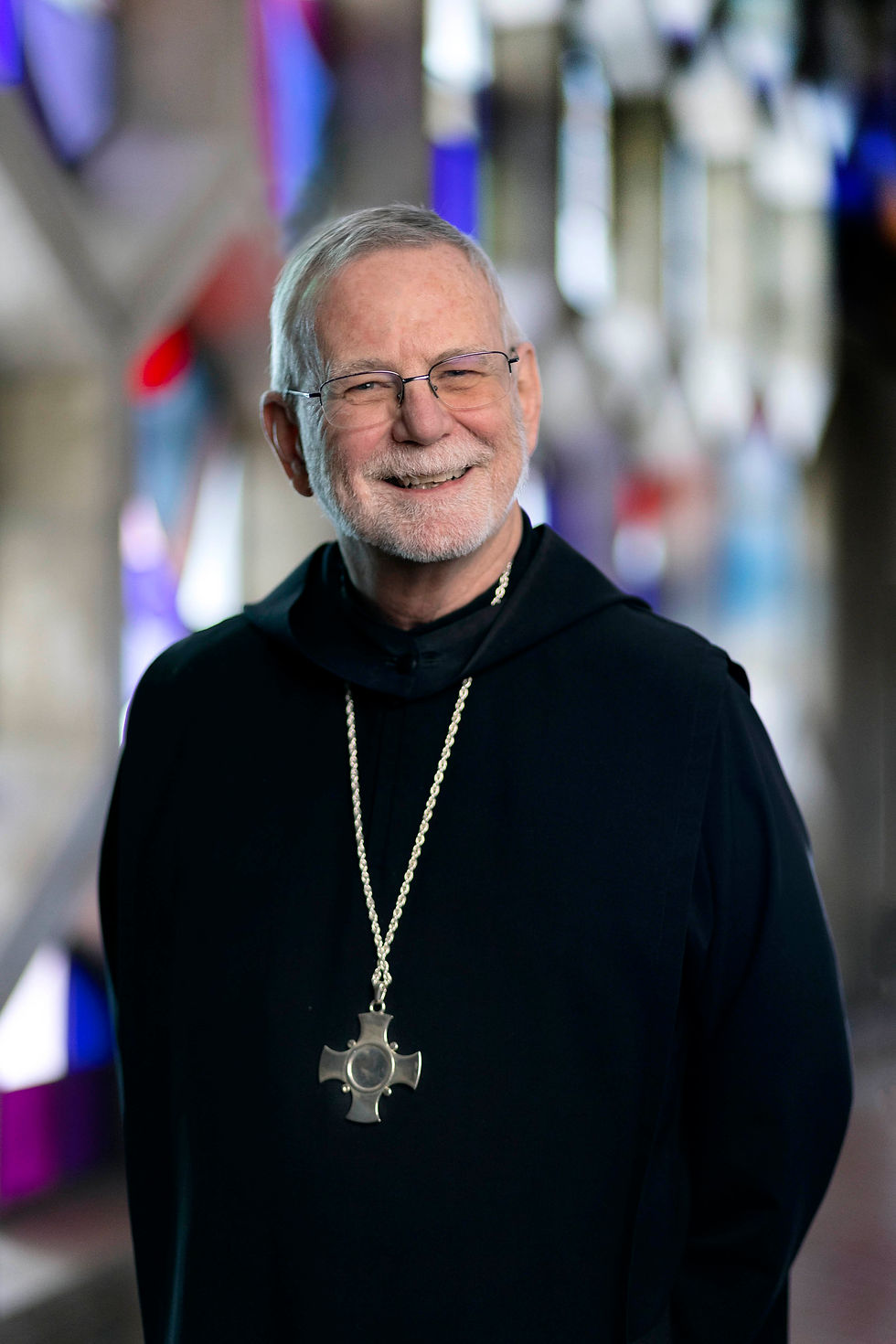
Board Member Fr Doug Mullin, O.S.B. Elected Abbot Doug of St John’s Abbey
My wife Florence and I watched, online, The Blessing of Abbot Doug Mullin, our friend and member of the U.S. China Catholic Association Board. We received a letter from Fr Geoffrey Fecht, OSB acknowledging our online presence. We share a section of his letter that describes the significance of the blessing and the role of the Abbot in his monastic community at St John's.
Abbot Doug has been a faithful member of the U.S. China Catholic Association Board since 2013. During my time as Chair of the Board and continuing to the present, he has contributed invaluable wisdom and leadership in the mission work of building bridges of friendship and dialogue with the people of China in partnership with our Chinese Catholic sisters and brothers. We know he will continue to carry in his heart love for the people of China.
We are grateful for Abbot Doug's service on the Board and pray he will be the faithful Face of Christ in his monastic community.
Shalom,
Tom McGuire
Member of the USCCA Board
-----------------------------------------------
Dear Tom and Florence,
The following is taken from A Monk’s Chronicle – 27 January 2024, by Fr. Eric Hollas, OSB
The Blessing of an Abbot is an important occasion in the life of any monastery. So, Abbot Douglas's blessing on January 28th marked a milestone for us at Saint John’s Abbey.
It was an event laced with all sorts of symbolism, intended to convey a great deal of meaning. The presence of our bishop, Patrick Neary, CSC, was only the most obvious of them. As the bishop of St. Cloud, Bishop Patrick conferred the blessing, and that action recognizes the relationship between the monastery and the diocese in which we live. Saint Benedict, in his Rule, made clear that a monastery in the Benedictine tradition has an important spiritual relationship with the bishop, even if, at times, the details can be a bit murky. Still, the bishop’s presence is a visible reminder that Saint Benedict did not intend for his monks to wander off, doing their own thing. We monks are part of the Church, and with the larger Christian community, we pilgrimage to the Lord.
Complementing that relationship with the Church, the very nature of the office of abbot distinguishes a Benedictine monastery from a secular institution. It’s true that Saint John’s Abbey has a legal existence in the state of Minnesota as the Order of Saint Benedict, Inc. But unlike other corporations, we believe that our CEO holds the place of Christ in our midst. It’s an awesome responsibility to be the face of Christ to the monks, but Saint Benedict makes explicit that the abbot does have that responsibility. With it comes the allegorical language that Saint Benedict invests in the office.

The abbot is a shepherd of souls. He is a wise physician. He is a careful and dexterous manager, seeing to the needs of each monk. But he is not a dictator. He ought to inspire the strong but not run the fragile monk into the ground. He is accountable for his actions, and Saint Benedict cautions the abbot that at the last judgment, there will be a performance appraisal. He will have to give an accounting for each monk in his care.
Given all that, why would any monk want that kind of job? A qualified candidate would not! And why would such a monk accept such a job? A monk accepts it out of a sense of duty.
He accepts it, convinced that the Holy Spirit has spoken through his brothers who called him to the task. And he accepts it in the conviction that the Lord who has begun such good work will walk with him and bring it to completion.
Blessings,
Fr. Geoffrey Fecht, OSB
---------------------
Click here: To view the Mass and blessing
Abbot Doug's remarks begin at 1.39.14

Comments